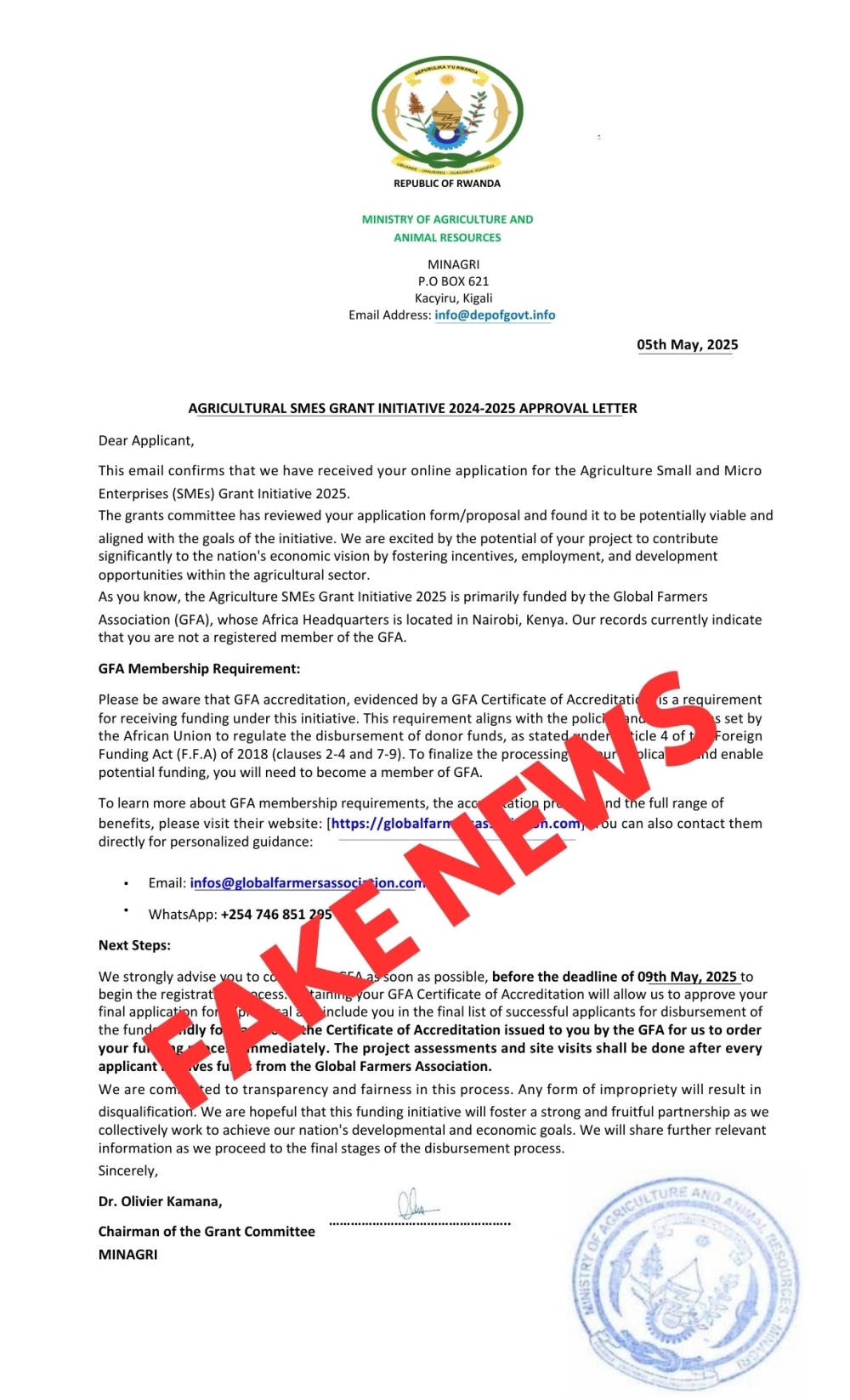Who doesn’t want to be cautious when sharing personal information? I certainly do. That sentiment hit home after a recent conversation with a regular reader of our opportunities section. They praised the effort to spotlight scholarships and grants for the youth but then came a cautionary note—the rise of fake calls for applications.
If you’re unfamiliar with the term, these scams often involve individuals or entities impersonating legitimate organizations to solicit money in exchange for promises of scholarships or start-up grants.
They come in many forms, from agents who claim to offer full-ride scholarships in exchange for a fee to fraudulent initiatives seeking registration payments for supposed SME support programmes. What they all have in common is manipulating people’s hopes, especially those seeking financial assistance to advance their education or careers.
Claver Rusaro, a digital content strategist with a local marketing agency, 250Brands, suggested something important: we need to start warning the public about these scams. At the very least, he advised, we should offer practical ways to spot them, because the red flags are there if you know what to look for.
Unsolicited contacts
One of the biggest giveaways is unsolicited communication.
Be very cautious when you receive messages, or calls, from unknown numbers or email addresses, especially if they claim to represent companies or organizations you’ve never contacted, Rusaro advised.

If your email address has been leaked—a common occurrence—scammers may reach out with offers that sound legitimate. These can include fake job offers, school admissions, or even prizes for being a “loyal subscriber.” When you receive such messages, take a moment to assess whether you signed up for anything related.
If not, do not click on any links or download attachments. Even a single click can give scammers access to sensitive data on your device.
The key takeaway: if you didn’t request updates, you shouldn’t be receiving them. Set up two-factor authentication and update your passwords regularly to protect your accounts. Trust your instinct, and if something feels off, verify it independently before engaging.
Poor grammar or unprofessional language
Many scams can be identified by their language.
If a message includes awkward phrasing, excessive capitalization, or spelling mistakes, consider it a red flag.
Legitimate organizations typically have communications teams that review all public materials. It’s unlikely that official calls for applications would contain glaring errors.
If the message looks unprofessional, read it critically. Ask yourself whether a serious institution would publish something that sloppy. In most cases, they wouldn’t.
Not posted by official accounts
Legitimate organizations typically announce calls for applications on their verified social media pages or official websites. If you come across an opportunity, take time to cross-check it with the organization’s online presence.
If the announcement doesn’t appear on their platforms, there’s a strong chance it’s not genuine.
Part of a proper application process includes public outreach. So, if a scholarship or grant offer is real, it should be easy to find through a quick search of the organization’s official channels.
If you’re not sure, use the contact information listed on their website, not in the suspicious message, to verify the offer directly.
Contradictory or inconsistent information
Scammers often struggle to maintain consistency in the details they provide. You might notice contradictions in their story or mismatched information that doesn’t add up. For instance, they may claim to represent a company based in New York but provide a contact number with a Kenyan country code, despite the company having no known presence in Kenya.
These inconsistencies are often a result of improvisation and limited knowledge. Pay close attention to small details like addresses, contact numbers, and names. Comparing these elements against publicly available information can reveal red flags and help you avoid falling victim to a scam.
Asking for payment
Perhaps the most obvious red flag of all is the payment request.
Legitimate donors rarely, if ever, ask for fees to access scholarships, register for grant competitions, or participate in funded programmes.
One scam I came across involved a fake artist residency in France. The offer promised winners a three-month stay, chosen through a draw—but only after paying a $50 registration fee. That may not sound like much, but if 100 people fall for it, the scammers pocket $5,000. Never pay to enter a draw or access a benefit that claims to be free or merit-based.
So what should you do?
It may sound obvious, but always do your research. Even the most cautious person can be caught off guard, but you can protect yourself by confirming opportunities with the issuing body.
In Rwanda, the Higher Education Council (HEC) maintains an updated directory of legitimate scholarships, many of which are backed by government partnerships. They also vet institutions and programmes to ensure students get what they’re promised.
The same principle applies to grants and other growth initiatives. Before submitting personal information or making any payments, check with the appropriate government ministry or agency. It may take a few extra steps, but it could save you from becoming another victim in a fast-growing scam economy.



